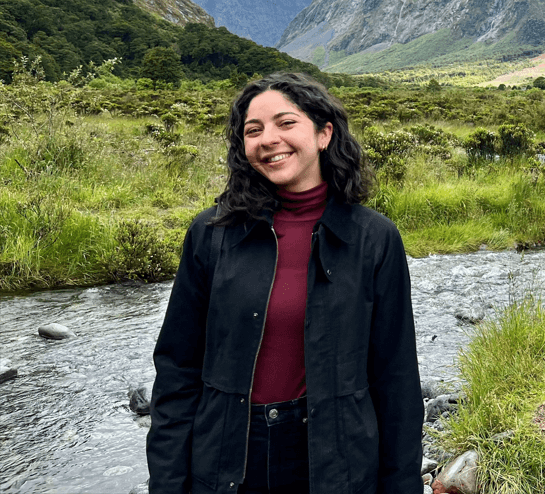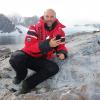Powerful conservation tech tools are gathering more data in the field than ever before. But without equally powerful and effective data management and processing tools, that data - no matter how groundbreaking or interesting - will not be able to reach its full potential for impact.
Data management can sometimes seem intimidating to conservationists, especially those just getting started in the world of conservation tech or experimenting with new data collection methods. While every community member's workflow and preferred data management and processing methods may be different, this group can serve as a resource to explore what works for others, share your own advice, and develop new strategies together.
Below are a few WILDLABS events dealing with datasets collected from various conservation tech tools:
Nicole Flores: How do I get started with Wildlife Insights?
Jamie Macaulay: How do I analyse large acoustic datasets using PAMGuard?
Sarah Davidson: Tools for Bio-logging Data in Conservation
Whatever conservation tech tools you work with, and whatever your preferred data management methods, we hope you'll find something helpful and effective in this group when you become a member!
- @KelseyGrace
- | she/her
Hello! I am PhD student studying Animal behaviour and welfare at the University of Lincoln. I am specializing in studying gopher tortoise cognition and applying what we learn to conservation practices.
- 0 Resources
- 0 Discussions
- 6 Groups
- @Cathrine
- | She
Ocean Conservationist
- 0 Resources
- 0 Discussions
- 5 Groups
- @insituphile
- | he/him
I aim to help create and distribute low-cost, open-source, community-focused sensor solutions for coastal water resource issues
- 0 Resources
- 0 Discussions
- 2 Groups
- @MattyD797
- | He/Him
I am studying biotic problems with abiotic intelligence. My research focus is in computational ecology within fishery acoustics, machine learning, remote sensing, and combining visual and audio species identification systems.
- 0 Resources
- 0 Discussions
- 12 Groups
- @Angele
- | She/Her
Working with IPLCs and applying data/geospatial tools for a conservation/carbon forestry project in the Philippines 🌿
- 0 Resources
- 0 Discussions
- 8 Groups
- 0 Resources
- 0 Discussions
- 5 Groups
Neuroscientist & engineer transitioning to conservation tech. I have experience working with large imaging datasets, pose estimation and positional tracking, and machine learning. Looking to get involved with GIS, remote sensing, and AI for conservation.
- 0 Resources
- 0 Discussions
- 17 Groups
- @ajcanepa
- | he him
PhD in Ecology, Nature's sound lover.
- 0 Resources
- 0 Discussions
- 5 Groups
- @PshemekZ
- | he/him/his
IT + nature
- 0 Resources
- 7 Discussions
- 8 Groups
- @ahmedjunaid
- | He/His
Zoologist, Ecologist, Conservation Biologist
- 0 Resources
- 0 Discussions
- 7 Groups
- 0 Resources
- 0 Discussions
- 6 Groups
- @bioNathan
- | he/him
Innovation Design Engineer studying at MSc + MA level. Previously a Robotics engineer with specialisms in remote sensing, control systems & electronics design. Transitioning to ecological contexts. I use bioinspiration to inform tech design, both product & infrastructure.
- 0 Resources
- 0 Discussions
- 8 Groups
April 2024
event
event
July 2024
October 2024
November 2023
event
Moveapps EMAC23 Coding Challenge – Participate now!
3 March 2023 7:45am
Underwater Fish Datasets from the Mediterranean
15 August 2022 11:45pm
21 October 2022 7:52am
Hi,
If this is still relevant, you can try reaching out to the Belmaker lab, they do BRUV surveys in the eastern Mediterranean and have hours of video, some of it I believe is annotated. Particularly, Shahar might be helpful, he's the PhD student running point on the project.
2 March 2023 2:03pm
We have made available our underwater videos on YouTube as a playlist https://www.youtube.com/playlist?list=PLnhVZKKy8WkZKriCIV6r7upWhHNVrU_7L
It's about 1.113 short video clips with annotation and each is linked to the corresponding www.iNaturalist.org observations. The iNaturalist.org observations are research quality and have been uploaded to GBIF.org. The observations have been made between 2014 and 2022 around the Ionian Islands (Greece).
If you would need the original videos please contact me.

The Arbimon newsletter is back!
23 February 2023 11:34pm
M&E organizational data management consultant needed
21 February 2023 4:48am
Operation Pangolin launches to save world's most trafficked wild mammal
16 February 2023 7:51pm
17 February 2023 1:50am
Hiring Full Stack Developer at Conservation X Labs
10 February 2023 5:35pm
2023 Ebbe Nielsen Challenge seeks open-data innovations for biodiversity
10 February 2023 10:46am
Commercially available connected audio sensors
2 February 2023 3:08pm
2 February 2023 3:55pm
Hi!
I am not aware of any such connected loggers/recorders but they would be nice.
The AudioMoths have been revolutionary in providing audologging at a low cost but they take a lot of "data muling" (carrying SD cards in and out of the field sites) and swapping of batteries.
Cheers,
2 February 2023 7:50pm
Hi Lars, thanks for the response. We are using lots of Song Meter Micro's atm and they have proved to be resilient. Just need something which doesn't involve going on site regularly - but get the data off.
3 February 2023 7:04pm
Rainforest Connection's (RFCx) Guardian devices may be of interest. They are solar-powered and have connectivity options for Wifi, GSM and satellite transfer. They've previously been used for detecting e.g., gunshots or chainsaws (using edge computing) and then sending positive detections/alerts to folks on the ground. RFCx also hosts Arbimon, a free, no-code software platform that facilitates analysis of audio data as well. Happy to chat more if you'd like to talk further about it!
How to conduct rapid eligibility assessments for forest carbon projects using geospatial data
3 February 2023 3:32pm
Consultancy opportunity: Wildlife monitoring specialist
31 January 2023 11:26am
Advanced Field School in Computational Ecology
25 January 2023 2:54pm
Senior Software Engineer
Interview for Technologies in Conservation
24 November 2022 10:07am
16 January 2023 2:42pm
I'd be happy to chat with you if you wanted! My expertise is within passive acoustic monitoring particularly. The Conservation Tech Directory might be useful for you in identifying relevant actors within the space.
16 January 2023 5:16pm
Happy to contribute [email protected]
17 January 2023 5:12pm
My original background is in ecology and conservation, and am now in the elected leadership of the Gathering for Open Science Hardware which convenes researchers developing open source tech for science. I am not working on a specific piece of technology right now, but am happy to contribute some higher-level views for your interview if that helps.
Software Engineer
16 January 2023 12:26pm
New paper - An evaluation of platforms for processing camera-trap data using artificial intelligence
13 January 2023 12:14am
We review key characteristics of four AI platforms—Conservation AI, MegaDetector, MLWIC2: Machine Learning for Wildlife Image Classification and Wildlife Insights—and two auxiliary platforms—Camelot and Timelapse—that incorporate AI output for processing camera-trap data. We compare their software and programming requirements, AI features, data management tools and output format. We also provide R code and data from our own work to demonstrate how users can evaluate model performance.
Conservation Technology Intern (Vietnam)
11 January 2023 5:00pm
Help : Topics in Remote Sensing and Management of Protected Areas
10 January 2023 11:04am
Conservation Design Project Recruitment
19 December 2022 5:52pm
4 January 2023 10:48am
intrested.
Otter video help!
5 September 2022 6:57pm
7 September 2022 6:12pm
Thank you for the response! I'm not sure how to find that out. It says MP4. Is that what you're looking for?
21 December 2022 7:46pm
Did you get any further with this Britnee?
26 December 2022 6:54pm
No, I was never able to figure out how to send these to anyone on here. I was hoping to learn how to clear these videos up if possible!
Job: Software Engineer at Benioff Ocean Science Laboratory
19 December 2022 7:59pm
Upcoming PAM & R Ocean Science Courses
16 December 2022 3:27pm
Join NASA’s harmful algal bloom ML challenge and win prizes!
15 December 2022 7:56pm
ONLINE TRAINING: Project Planning for Wildlife Conservation
15 December 2022 7:11pm
How could your work on data management be made easier?
14 December 2022 12:10am
Workshop Invite: Building Partnerships between Conservation Tech and the UK Space Sector
22 September 2022 3:50pm
5 December 2022 3:10pm
Hi Steph,
If it's not too late, I'm very interested in this workshop.
Best,
V
6 December 2022 5:52pm
Hey Vance! We hosted the workshop a few weeks ago, but we're doing follow up calls and future meetings. I'll loop you into the next call!
Steph
12 December 2022 12:03am
Hi Steph. Would be interested also.
Senior Software Engineer
9 December 2022 5:01pm
New: Satellites for Biodiversity Award
5 December 2022 2:08pm
Webinar: Cloud Computing for Biodiversity and Nature-Based Solutions
2 November 2022 8:09pm
Data mgmt for Passive Acoustic Monitoring best practices?
14 September 2022 8:35pm
15 September 2022 4:20pm
Hi Alex--
The first thing I'd suggest you think through is how much data you have vs how much data you are currently working on. Because if you have data from previous years that you want to ensure you're storing securely and reliably but don't need immediate access to in order to run analysis on, that opens up some options. You can compress data using lossless algorithms like FLAC, where the compression ratio varies but 50% is a pretty good margin, and then convert back to WAV if necessary for reanalysis. Compressing using MP3, OGG, AIFF, or other compression algorithms is an option that saves even more storage space but you will lose information in ways you wouldn't with FLAC--it depends on your specific needs.
I'd also recommend setting up a RAID array (RAID = "Redundant Array of Inexpensive Disks"). This offers some additional security in event of a drive failure. A lot of folks who do video editing, probably the most similar use case to people working with acoustic data who also lack the institutional support of a large company or university IT department use a local NAS enclosure like https://www.qnap.com/en-us/product/ts-433 that are designed for just this purpose. Some higher initial startup costs than just buying individual USB hard drives but that does come with some perks including additional reliability and can be faster to read data depending on the exact drive specs and your local networking setup.
There are also low-cost cloud storage services like Amazon's Glacier. However, getting these set up can be a little bit tricky and they are not particularly responsive (for example, if you upload data to Glacier, it will be very safe, but getting it back if you need to use it again can take a few days depending on the dataset size).
19 September 2022 1:58am
Hello Alex,
My information might not be that helpful to you, still, our organisation have an Enterprise license of AWS cloud and we store all our media files (video, pictures, audio etc.) there. We are also using a media management solution, Piction, thru which we upload the files into the S3 bucket and in the process it also captures the file metadata (some of the metadata values needs to be entered manually). This is useful to search the files if someone wants to view or process the file later. We are soon deciding on the file storage configuration so that old files will move to cheap storage like AWS Glacier, which will take a maximum of a week time to retrieve it.
Jitendra
28 October 2022 4:19pm
Hi Alex,
I'd go much further along the lines that David @dtsavage sets out. Before jumping to implementations, better think through why you want to keep all that data, and for who? From your question, it appears you have at least three purposes:
1- for yourself to do your research
2- for others to re-use.
3- for yourself to have a back-up
For 1) you should do what works best for you.
For 3) use your organization's back-up system or whatever comes close to that
For 2 and 3) As you are indicating yourself : deposit your data at your nation's repository or zenodo.org if your nation doe not have one. It may be some documentation work ( which is what you should do anyways, right? ), but then you can stop worrying about holding on to it. Someone else is doing that for you and they do a much better job - because it is their job. Moreover, you increase the chance that other will actually become aware of all that data that you are sitting on by putting it into a repository. Who is otherwise going to find out and how that you have those disks on your desk? Lastly, depositing your data can also serve as a back-up. If you don't want to share it before you've published about it, there is likely the option of depositing under time-embargo or of depositing while requiring your consent for any re-use.
You ask how many people actually do this? You can find the answers at the repository, but I suggest that what matters most is whether you want to for your own reasons, and whether your funders, or organization's funders require it.










































26 September 2022 9:32pm
Not sure if audio data would be of any use to you, but if so FishSounds has some - I just tried their search function and there is a location tag for 'Mediterranean & Black Sea'.
You might try reaching out to the folks at Name that Fish, Innovasea, or perhaps an entity on the Fisheries Tech list would have Mediterranean stuff?